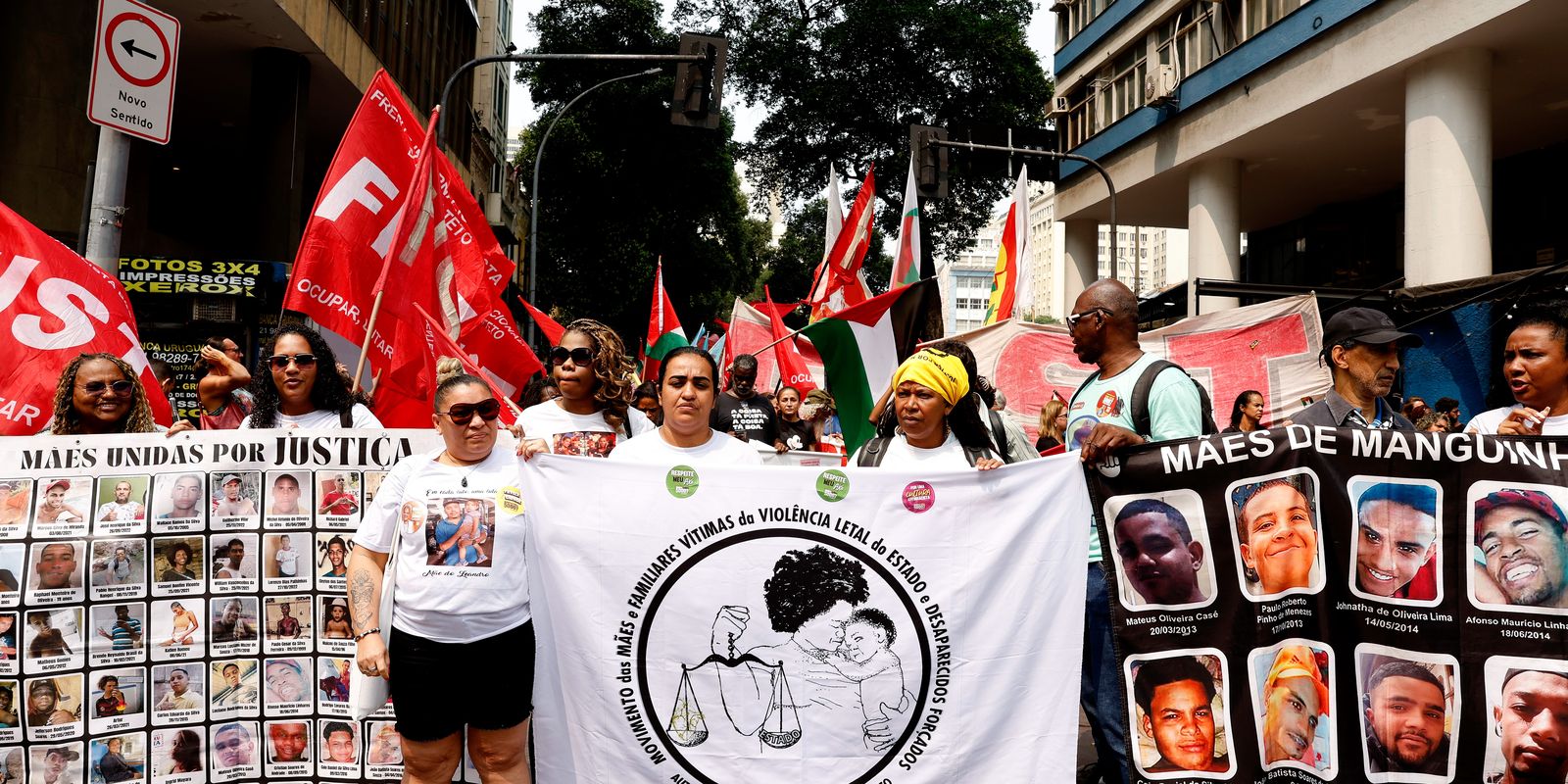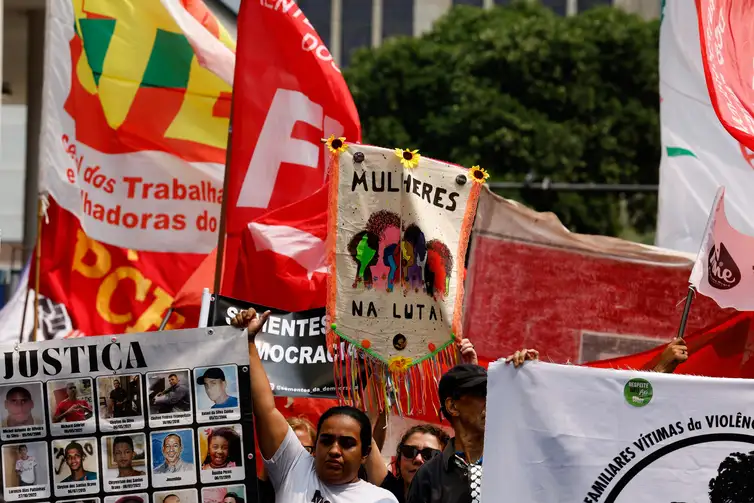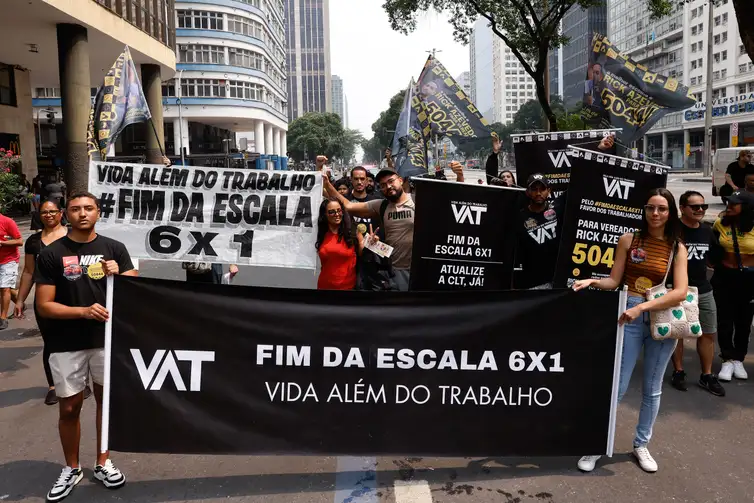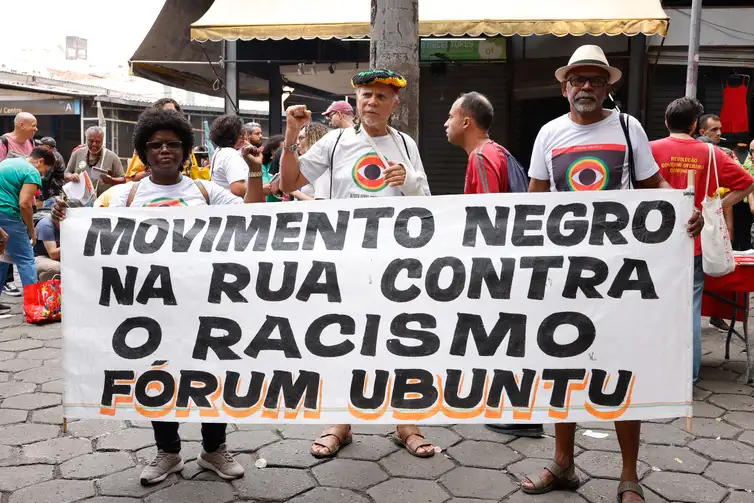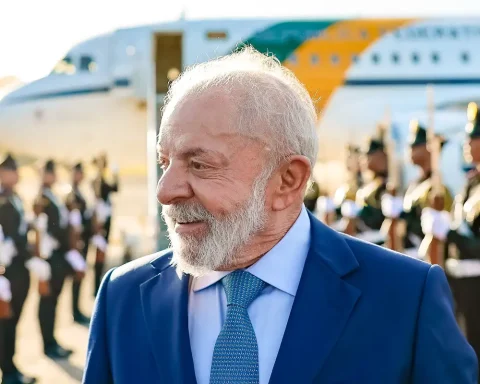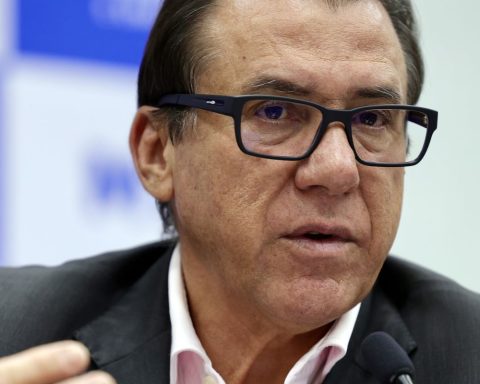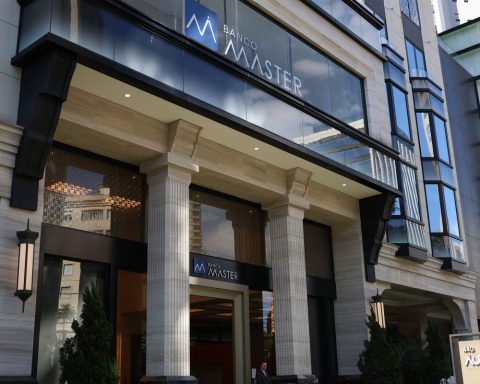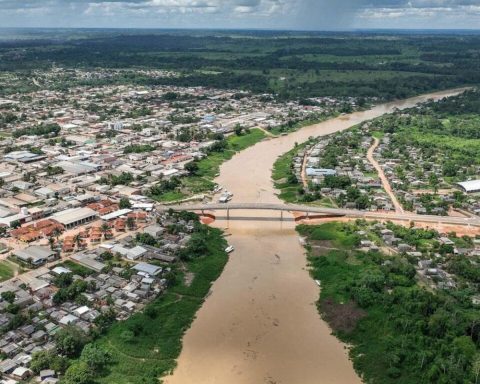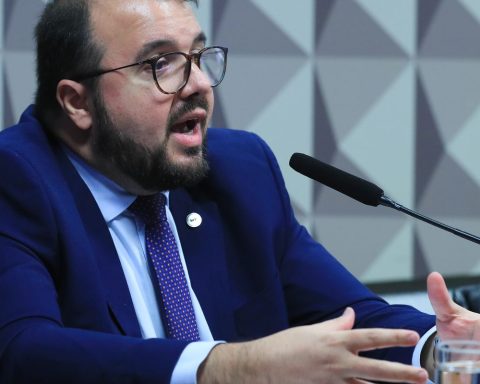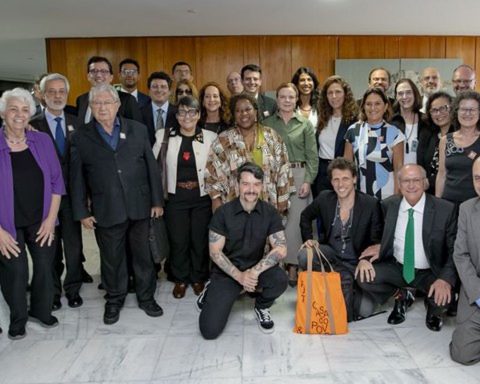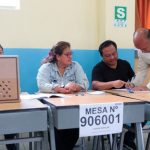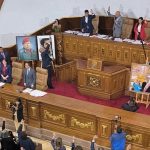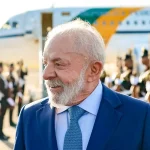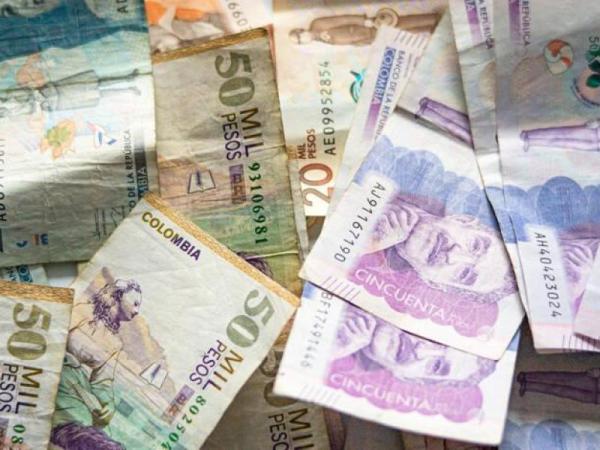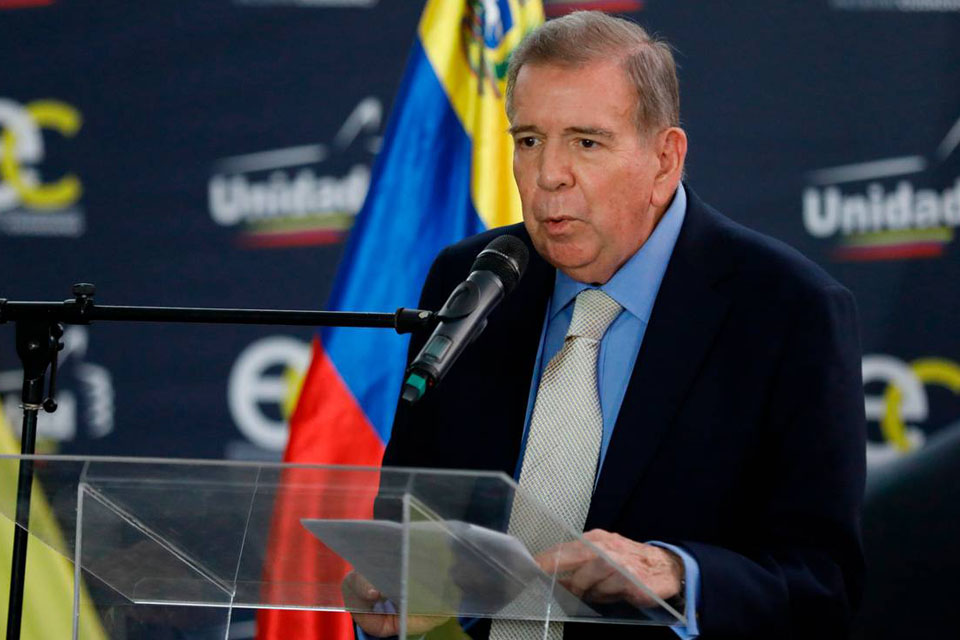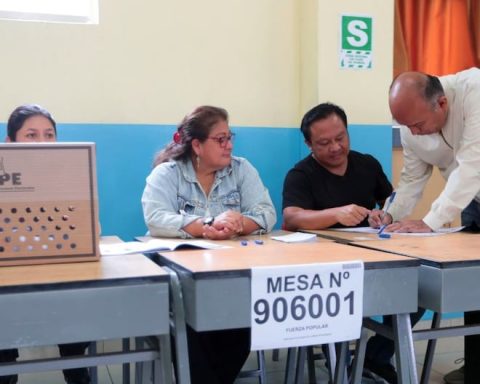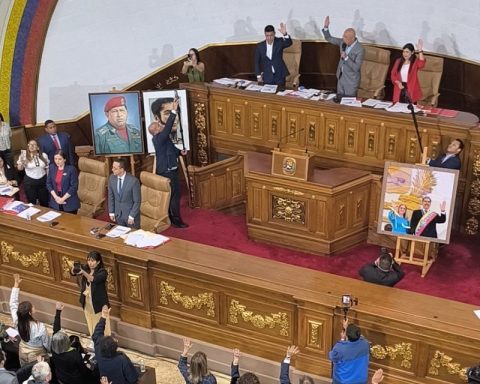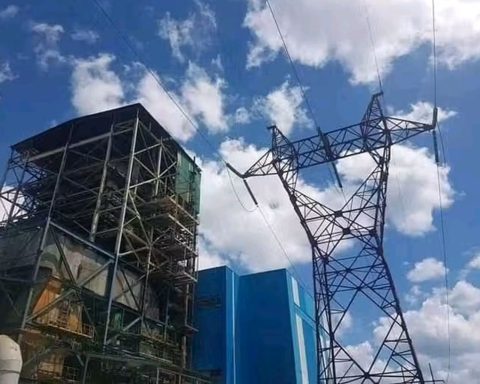Mothers who lost their children in police operations formed the front line of the Grito dos Excluídos, which marched through the streets of downtown Rio de Janeiro this Saturday (7). The event, which is traditionally held on September 7, reached its 30th edition. Since gathering at 10 am, on the corner of Rua Uruguaiana and Avenida Presidente Vargas, they carried posters with the faces of the victims and demanded justice.
One of the claims involves the federalization of cases involving police lethality in Rio de Janeiro. In July of this year, the Attorney General’s Office (PGR) received a representation in favor of the measure involving four cases, including the so-called Jacarezinho Massacre, which occurred in 2021 during a police operation that left 28 dead and is considered the deadliest in the history of the capital of Rio de Janeiro. The discussion is taking place in view of evidence of human rights violations in cases that are being processed at the state level. The PGR, however, has not yet decided whether it will file a request for federalization with the Court.
“No one suffers more from state violence than these mothers. And the worst part is that impunity prevails. The murderers of many have never been punished or are not even facing charges. These are the lives of young black children and youth from the outskirts of the city. When we give these mothers the spotlight, we say: we care about these lives,” says Sandra Quintela, who is part of the Jubilee South Brazil Network and the national coordination of the Cry of the Excluded.
Since 1995, the Grito dos Excluídos has involved organized demonstrations in several cities throughout the country. They bring together a variety of groups, entities, unions, churches and social movements committed to popular causes. Sandra emphasizes that, in each place in Brazil, the demonstration has a characteristic. She mentions, for example, that in Fortaleza, there is strong leadership from the Catholic Church and that, in Manaus, the demonstration takes place on September 5, when Amazon Day is celebrated. “Here in Rio, we started last year, with this tradition of mothers leading the Grito dos Excluídos. And we intend for it to be like this from now on,” she stated.
The motto “All forms of life matter” set the tone for the 30th edition. “Reaching this milestone shows the strength of grassroots organization, of organization that is built from the bottom up. The Cry of the Excluded is a process. Everything is decided and built collectively. And it also started with the proposal to demilitarize September 7th. This is a date of the colonizers. It was the Prince Regent who proclaimed our independence. So, we are taking to the streets to say that this is an incomplete independence. As long as there is inequality, injustice and violence in the city and in the countryside, we will not be an independent country,” adds Sandra.
Protesters who took turns at the microphone defended a variety of issues such as the defense of the environment, guaranteed access to housing, the fight against religious racism, the end of the repressive war on drugs policy and changes in work shifts, among others. Roberto Oliveira, a member of the coordination of the Movement of People Affected by Dams (MAB), highlighted the day of struggle that the entity launched on Thursday (5) in different cities in the North Region, to mark Amazon Day.
He considered that the current economic model promotes the destruction of Amazonian biodiversity and harms local populations. “We need to look at the poorest families, affected by the climate crisis, landslides and floods, and the heavy rains that will fall, mainly, on the homes of the most vulnerable,” he warned.
The researcher in public health and activist of the Brazilian Revolutionary Communist Party (PCBR), Mariana Nogueira, said that there is no democracy if the poor, black and favela people do not have access to health and education. “We have had schools closed for weeks in Tide Complex“, he criticized, mentioning the consequences of operations involving the demolition of properties considered irregular by the city hall.
Some candidates in the municipal elections also spoke. Along the route to Praça Mauá, the protesters chanted slogans on a variety of topics. “We always work on the issues of education, health, transportation, quality of life. There is a real scattering of issues. These are the demands of the excluded. So, as it is a dynamic and democratic process of construction, various issues are introduced and incorporated,” explains Sandra.
Other manifestations
September 7th was also a milestone for other demonstrations in the capital of Rio de Janeiro. The Eastern Military Command held the traditional civic-military parade on Avenida Presidente Vargas starting at 8:30 a.m. At the opening of the activities, the pyre was lit with the symbolic fire of the country. Then, the Independence Anthem was sung, accompanied by a 21-gun salute. The parade commemorated the 80th anniversary of the Brazilian Expeditionary Force (FEB) and paid tribute to the 25,000 Brazilian soldiers who fought in World War II in 1944.
On the Copacabana beachfront, in the south of the city, a group of protesters gathered in support of impeachment by the Minister of the Federal Supreme Court (STF) Alexandre de Moraes. A sound car was parked on Avenida Atlântica, serving as a platform for speeches.
Protesters criticized Moraes’ decision to suspend the activities of the social network X, after the company refused to comply with court orders and appoint a legal representative in the country. Those unhappy with the minister’s actions also consider that he committed abuses against freedom of expression and claimed that he violated the law in trials of participants in acts that resulted in the vandalism of Praça dos Três Poderes, in Brasília, on January 8, 2023.
